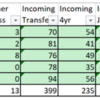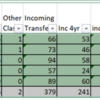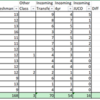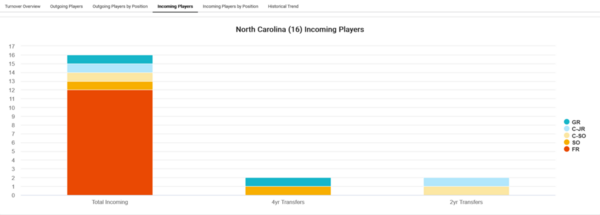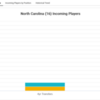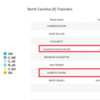Question about recruiting for the extremely helpful people on here. My kid has been starting shortstop batting close to .500 every year and is now a Snr. Unfortunately played last year with a bad hammy and undiagnosed torn Labrum and Bicep, so he played only half the games his Jr year. Then he needed surgery and missed all summer with his Nationally ranked summer team. All his discussions about offers to larger D1s dried up due to the injuries. He runs a 6.70 and plays a very strong SS, and can hit from both sides. 3.8 GPA and has been accepted without athletics to a couple of D1 schools he would love to play baseball at. Trying to evaluate his options now. We don’t need a scholarship for school, but he really does not want to go to a school and not be a part of a team. What should we do? Reach out to the coach of the school he is accepted to and wants to attend? Take advantage of an offer from a smaller D1 school that plays against the schools he would love to play at? JC? I have heard with the portal that it is not as great an option these days. Or take a post-grad year, and if once healthy, try again. As everyone says to play in college, it takes a lot of factors and luck! I would love your insights and appreciate your reading this long post!!
Replies sorted oldest to newest
My kid knows several healthy 22s in "small D1s" that are not going to play in 2023 due to overcrowded rosters and xfers. Did you look at HA D3s?
jucojucojucojucojucojucojucojucojuco!!!!
Seriously- its hard for me to recommend anything else right now. My 2020 has been on a D1, Juco, and now a D2 campus and he wishes he would've went JUCO from the beginning. 4 year rosters are clogged up at every level. Exactly one freshman will play at all on his D2 this year (and my kid thinks he made a major mistake coming there instead of Juco). None of the freshman when he was at his D1 played at all. JUCO's are great developmentally and you are going up against mostly freshman and sophomores with all of the weird Covid 3rd year (and sometimes 4th year) stuff being cleared out by the time he'll be there. I have a 7th grader and if he plays college baseball, he fully plans on doing Juco. I think the exception would be a) a draftable prospect that actually can play at a D1 early or b) a low-end prospect that is going to a D3/NAIA program that is much lower key. I can think of a few kids around here that went to those kind of places out of high school and its worked out for them and they are playing.
If you can afford it I'd recommend considering a post graduate year. Many of the benefits of Juco without starting the eligibility clock.
What do the travel coaches at his nationally ranked program think? They should have a pretty good idea as to which level he fits in at.
Do they think he can play at the schools he was already accepted to? If yes, his coaches should be reaching out.
My guess regarding the larger D1s would be if he did not have offers last summer he was probably on the back end of their radar to begin with and most likely not a great fit.
Mountain,
Your son has some skills on the field and in the classroom. You've experienced what injuries do to athletes, and I'm hear to tell you injuries aren't any better as a college baseball player at any level. Coaches put injured players off to the side to recover and focus on the players they can put in a lineup. They have to as their job depends on it. Your son would be coming into this with a pre-existing injury situation (despite his skills), so I'm not sure how much rope the HC is willing to give him. It depends on the program. So, that would be in the back of my mind.
Additionally, I think you need to sit down with your son and have a discussion about what he wants to do after college. That answer would dictate a lot of what happens next, and then there is no wrong answer because your son would be following the path he has envisioned for himself. Every kid is different. I know how my oldest son would have responded, but that doesn't help you much. Figure out where your son wants to be in 5-6 years, and then work back to what fits best.
Also, I would have your son reach out to the D1 HCs your son has been accepted to. Talk to them about his situation and see what they say. Possibly they give him advice on a JUCO they pull from? Possibly they recommend he play club ball at the D1? Your son has nothing to lose in terms of talking with those D1 coaches.
JMO, and good luck!
My kid played D3 baseball with a chronic hamstring, torn labrum (throwing shoulder), torn PCL, hamate fracture, and more. He managed to gut his way through 122 games over 4 seasons. His performance was definitely impacted by all the injuries, but he managed to stay in the lineup and I don’t think he would change anything (he stilled loved playing).
Has your son fully recovered from his injuries? That should be a big factor in his decision. If he doesn’t show up on campus next fall at 100%, any level of college baseball will be tough, especially since speed is one of his best tools.
California juco definitely might be a good choice. An injury free juco career would eliminate that concern with potential D1 coaches. And if injuries continue to be a problem, he could lower his sites when choosing a 4-year school or give up baseball altogether. Would there be any reason for him to go out of state for juco? Different governing bodies and recruiting rules outside of CA.
Has he ruled out a gap year? More difficult to play good competition during a gap year, but he could heal, work out, and maybe pursue other interests like travel.
All the best.
@BPGuyfor2020 posted:jucojucojucojucojucojucojucojucojuco!!!!
Seriously- its hard for me to recommend anything else right now. My 2020 has been on a D1, Juco, and now a D2 campus and he wishes he would've went JUCO from the beginning. 4 year rosters are clogged up at every level. Exactly one freshman will play at all on his D2 this year (and my kid thinks he made a major mistake coming there instead of Juco). None of the freshman when he was at his D1 played at all. JUCO's are great developmentally and you are going up against mostly freshman and sophomores with all of the weird Covid 3rd year (and sometimes 4th year) stuff being cleared out by the time he'll be there. I have a 7th grader and if he plays college baseball, he fully plans on doing Juco. I think the exception would be a) a draftable prospect that actually can play at a D1 early or b) a low-end prospect that is going to a D3/NAIA program that is much lower key. I can think of a few kids around here that went to those kind of places out of high school and its worked out for them and they are playing.
Quality JUCO's are also crowded.
It will depend on the families goals and objective, plus where you live, many say go JUCO, then you will need to ask yourself which region do you think your son will be able to compete.
JUCO is also crowded, with high turnover.
https://collegebaseballinsight...nover-insights-free/
Here is an article that was done in collaboration with Keep Playing Baseball
https://keepplayingbaseball.or...f-the-juco-pipeline/
Going the JUCO route is all about the pipeline
https://collegebaseballinsight...line-dashboard-free/
With respects to Post Grad, it has been around, just getting a new rebranding based on covid impact and demand.
You can find the following on twitter.
Walter Beede has video specific about post grads here is his channel https://www.youtube.com/@baseballlifer
Roger Wilkinson -Sport Performance Institute has also spoken about post grads (check him out on twitter
Sportsforce (check it out on twitter spaces)
FWIW my son was also a SS and had a serious injury that was disruptive in recruiting. He’s at a JuCo starting his second season and it has been very rewarding (but much more difficult than I imagined). My $.02 is to think of junior colleges (as y’all call them out there) as a fundamentally different strategy from a D1 4-year program. D1-JuCo is not D1-lite. It is a different way to climb the hill.
Pitchers and hitters climb the hill differently, too, and most of what you read here is about the pitcher’s climb. Hitters have it different. It took me a while to get this.
The Post Grad pitch sounded very interesting to me. Especially for an injury-impacted player (my son and yours). Two thoughts:
1. The PG teams I’ve seen play, very limited exposure but here in TX where there should be good programs, were not robustly talented. Your son needs to see the *best* pitching available. Aside from getting bigger and adjusting to college-level demands (school, living outside the home, competitive intensity), the adjustment that matters is hitting real college pitching. When I hear he hit 500 throughout HS I wonder if he’s seen anything like what he is about to see. At the next level there are tons of athletic guys who can play across IF and Outfield - the ones who hit well on legit college pitching play. PG gives ABs but I’d check if it gives him elite pitching matchups. If you aren’t hitting elite pitching what are you doing? D1 gives you elite pitching but the odds of seeing 100+ ABs as a freshman are not good. JuCo is a strategy that can deliver a higher likelihood of both ABs and quality pitching for freshman
2. Life is a battle and there is always going to be adversity — our boys enter the arena at a time when baseball is especially clogged with talent. For my son’s situation, I would be wary about PG and the signal that could light up in him. About waiting vs confronting a tough reality. Very personal issue, but something to think about.
i imagine SRJC is on your radar but if we lived closer it would be pick of the litter. Do not assume that D1 offers mean he will own any position or even get regular starts at that caliber of school. He might redshirt, he might struggle adjusting, there might just be a few guys who are just better. JuCo is a grind. He will see pitchers who dropped down from elite P5 programs, pitchers about to go dominate in those programs, and he’ll see guys who are about to get drafted. Listen to the experiences of hitters (not just pitchers). Go to games, see what the pitching looks like. See who transfers in — there will be a lot of sophomore D1 guys changing lanes and trying the JuCo route up the mountain, too.
Hope he’s feeling healthy and ready to have a blast senior year.
I see some comments in this thread about travel ball coaches. And I have opinions about that - based on my own personal experience. All travel ball coaches are not created equal. Some have a good frame of reference for evaluating where their players fit at the next level. But many do not. In fact more don’t than do IMO. Also, many of them don’t understand the recruiting process very well. So I would be very cautious about depending on a travel ball coach for guidance regarding recruiting. Unless it’s a travel ball coach that has a lot of experience and a history of placing players in programs where the players have success.
When posters claim their son’s are D1 prospects I assume they’re playing for top programs in their area. It’s when I assume the coaching staff knows what they’re doing, are established, have contacts and have the respect of the coaches they know.
On the flip side a kid I coached in LL played for the B team of a top 17u travel program. They did absolutely nothing for him. The A team players typically go D1. This kid became a D3 All American. He didn’t have the overall metrics for D1. But he had a D1 bat, a reliable glove given his quickness and range and baseball smarts. All his offers came from Head First.
I assumed his nationally ranked summer team had experience with properly placing guys
adbono, long415, mountain
During our years with The Area Code games, whenever I needed info on a player or his Summer team, I contacted the Pro Scouts in the player's area.
The Scouting network is extensive, educational and informative.
Bob
The roster logjams are a real issue and will continue to be an issue into 2024
Your choices are fairly clear:
1) Take a gap year, get healthy, and have more of a chance to contribute on the playing field for 4 years
2) Enroll right away, work while you wait, sit the bench, contribute in any way you can, hope to start by your Junior year….but actually graduate from college as a 22 year old. Some of these guys are finishing up college as 24-25 year olds these days. That’s 2-3 less years of earnings power post college, and for those with pro aspirations: a 24 year old rookie is awfully old
btw athleticism is increasing at a rapid pace. A 6.7 runner is more of a high level D3 guy these days than a D1, especially if he doesn’t have prodigious power
@3and2Fastball posted:The roster logjams are a real issue and will continue to be an issue into 2024
Your choices are fairly clear:
1) Take a gap year, get healthy, and have more of a chance to contribute on the playing field for 4 years
2) Enroll right away, work while you wait, sit the bench, contribute in any way you can, hope to start by your Junior year….but actually graduate from college as a 22 year old. Some of these guys are finishing up college as 24-25 year olds these days. That’s 2-3 less years of earnings power post college, and for those with pro aspirations: a 24 year old rookie is awfully old
btw athleticism is increasing at a rapid pace. A 6.7 runner is more of a high level D3 guy these days than a D1, especially if he doesn’t have prodigious power
Initial results of Incoming recruiting class Insights
For 2022 Season, ~ 62% recruiting class for p5 were freshman
Here are some of the preliminary numbers for 2023, based on 2022 fall.
Note, numbers are skewed due to certain schools not publishing their fall roster.
ACC - (-3)
Big12 - (-2)
BigTen (-1)
PAC-12 (-3)
SEC (-6)
Attachments
Just looking at that how things have changed. The number of transfers in SEC has gone from almost all juco transfers to almost twice as many 4 year as juco and 1/3 of the incoming class is transfer guys and I bet the number who get to play of that incoming class is probably 95% transfers versus freshmen. For 2023 class it will be 50/50. That is crazy. I'm glad I'm done with the recruiting stuff.
@CollegebaseballInsights Does the data show that the players transferring from 4-years are transferring from specifically D1 schools? It looks like if a HS players wants to make a P5 roster, their best shot is potentially right out of high school. Next best shot would be to attend a 4-year, then transfer. It would be interesting to also see if the 4-year transfers had initially been at a Juco. Also, maybe some of these transfers from Juco could have been initially at 4-years?
@Momball11 posted:@CollegebaseballInsights Does the data show that the players transferring from 4-years are transferring from specifically D1 schools? It looks like if a HS players wants to make a P5 roster, their best shot is potentially right out of high school. Next best shot would be to attend a 4-year, then transfer. It would be interesting to also see if the 4-year transfers had initially been at a Juco. Also, maybe some of these transfers from Juco could have been initially at 4-years?
@Momball11 In order for CBI team roster turnover feature to work correct, we've built processes to reconcile all transfer data point between schools.
So the simple answer is that information is at the school level
This particular project was internal for all D1 schools for 2022 and 2023 season.
We are working on a blog to explain our findings, which will include the impact of head coaching changes.
Here is the 2022 breakdown for ACC
Attachments
Thanks @CollegebaseballInsights! I logged into my account and started looking at each school level. Would those that fall in the "Other Class" be players that are from a post grad program?
@Momball11 posted:Thanks @CollegebaseballInsights! I logged into my account and started looking at each school level. Would those that fall in the "Other Class" be players that are from a post grad program?
"Other class" means they fall between the cracks.
Non Freshman that weren't on the team the previous year.
Could be for many reasons:
- A transfer that hasn't been reconciled.
- Player was not on varsity roster for whatever reasons (on JV, name change, etc)
Just corrected North Carolina
2 transfer players weren't linked.
Attachments
@Momball11 posted:Thanks @CollegebaseballInsights! I logged into my account and started looking at each school level. Would those that fall in the "Other Class" be players that are from a post grad program?
Just remember, we've published the 2022 Fall rosters as 2023. About 243 of the 305 provided roster, information is not as clean as the spring rosters. This is a quick glance to help project.
@fenwaysouth posted:Mountain,
...........Also, I would have your son reach out to the D1 HCs your son has been accepted to. Talk to them about his situation and see what they say. Possibly they give him advice on a JUCO they pull from? Possibly they recommend he play club ball at the D1? Your son has nothing to lose in terms of talking with those D1 coaches.
JMO, and good luck!
FWIW, note that if your son is advised to play club ball for a season at any college that also sponsors an intercollegiate team, that will count as one of his four seasons of college eligibility under the NCAA rules.
@Rick at Informed Athlete posted:FWIW, note that if your son is advised to play club ball for a season at any college that also sponsors an intercollegiate team, that will count as one of his four seasons of college eligibility under the NCAA rules.
That’s interesting. I would not have thought that would be the case. Thanks for posting that information. Just one more NCAA rule that I don’t agree with.
I didn't realize until after I posted my comment that this same topic (club ball) comes up in another thread titled "Post Graduate Year."
Thank you all for you comments and insights. We have a lot to consider!
I really appreciate it!!
@Rick at Informed Athlete posted:FWIW, note that if your son is advised to play club ball for a season at any college that also sponsors an intercollegiate team, that will count as one of his four seasons of college eligibility under the NCAA rules.
Would that be the case if you joined any club? Any club team? Ex - joining the soccer club even if you want to play baseball down the line?
@PABaseball posted:Would that be the case if you joined any club? Any club team? Ex - joining the soccer club even if you want to play baseball down the line?
The rule is sport specific. It's only an issue if an athlete participates on a club baseball team and then hopes to play baseball for that university's NCAA team.



